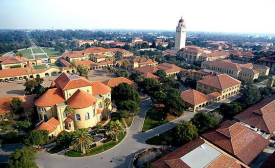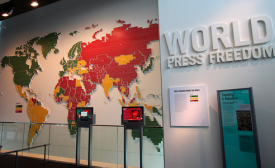state department
In this video, members of Pakistani indie rock band, Poor Rich Boy, talk about utilizing the universal language of music to tell their story to American audiences through their month-long Center Stage tour in the U.S.
Right now, all over the world, former Fulbright scholars like me (Norway, 2012) are raising the alarm, trying to persuade Congress to stand by one of its best creations, passed by unanimous bipartisan consent of the Senate and signed into law by President Truman in 1946. Yet the Fulbright budget, which falls under the State Department’s Bureau of Educational and Cultural Affairs (ECA), seems to be on the chopping block.

A new initiative shows promise in promoting U.S. higher education through traditional PD channels.

Among the principal assets of U.S. public diplomacy are American values. They are admired around the world, even by many people who dislike American policy. No other political system offers such extensive individual and systemic freedoms as those enumerated in the Bill of Rights. Showcasing and standing up for those freedoms should be at the heart of U.S. public diplomacy.

“Treknie gadi (the fat years) – tas jums tiešām ir jāzina (that one you really have to know),” said the Latvian teacher, and, for the next two hours, our language class dissected those two words. We read in Latvian about Prime Minister Aigars Kalvītis and his famous 2005 speech to the nation promising a modern incarnation of Jacob’s biblical prophecy of seven ‘fat years’ of prosperity followed by seven years of hardship. We learned pārpalikums (surplus) and dižkibele (global financial crisis).







